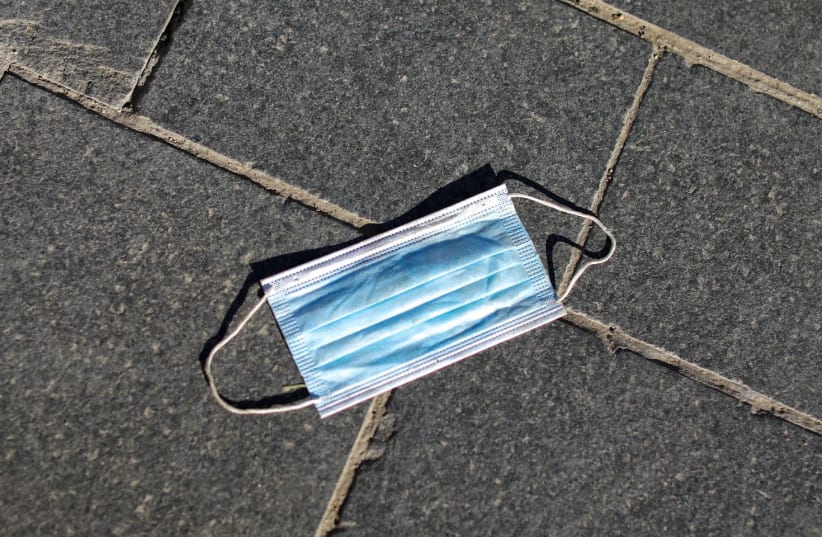There is a tendency in Israel to swing between extremes – from complete complacency one minute to all-out emergency the next. The COVID-19 situation as it stands in Israel needs a middle course – caution, rather than complacency, but not panic.
Only last week the regulation requiring masks in public places was lifted – removing basically the last anti-coronavirus restriction. Naturally, Israelis were jubilant. Life is returning to normal; and, in this, Israel is way ahead of many other countries, thanks in large part to the successful and widespread vaccination campaign led by the previous government.
However, it seems that in the race to return to normalcy, caution has been thrown aside.
The coronavirus figures for Israel are not alarming. On Sunday, 48 new cases were identified, and there are currently some 350 active cases in the country, of whom less than 30 are in serious condition. There have been no fatalities for a week, which is definitely encouraging. On the other hand, the outbreak in schools in Binyamina and Modi’in cannot be ignored. Some 45 pupils in Binyamina alone have been infected in recent days.
Parents, pupils and staff in those towns have come to realize that corona is not a thing of the past but, rather, is still with us. It’s a lesson we all need to internalize.
Health Ministry officials do not predict a fourth wave of corona of proportions and accompanying restrictions similar to those we saw in 2020. However, they are concerned by the speed at which the so-called Indian variant can spread. Fortunately, the Pfizer vaccine – the one most Israelis have been vaccinated with – is proving very effective (although not 100%).
One step to take is for parents to get their teenage children vaccinated. The vaccine is available for children from age 12, but only some 10% of the 12-18 age group has taken advantage of this, and teenagers are not widely vaccinated.
As in the past, Ben-Gurion Airport is the weak point through which more infected carriers are coming into the country. The stories and reports of those entering the country paint a chaotic picture. Particularly absurd is the fact that disembarked passengers may remove their masks the minute they land and then crowd together, mask-less, waiting for the corona tests. Passengers from red, high-risk areas stand in line – or crush together – with those who have arrived from low-risk, green countries. With the higher number of arrivals, the waiting period can be more than two hours in these crowded, mask-less, surroundings.
Even more absurdly, these new arrivals can then continue by public transport to their final destination, presenting a risk to passengers with them on the train or bus. If nothing else, the requirement to wear masks must be reinstated for the airport, border crossings and all public transport from them.
Prime Minister Naftali Bennett and Health Minister Nitzan Horowitz agreed on Sunday to task some additional 250 police officers to enforce quarantine requirements for those returning from abroad, build a new testing complex at Ben-Gurion Airport and increase the number of testing stations, as well as carry out a public information campaign to foster awareness of the importance of respecting quarantine regulations among the public.
The Israeli focus on not being a freier – to avoid being a sucker – must change to successfully handle the virus among us. People who want to wear masks, and people who need to wear masks because of background ailments, age and so on, must be able to feel at ease doing so.
The fact that one doesn’t need by law to wear a mask on public transport or in the supermarket doesn’t mean you can’t wear one or shouldn’t wear one. On the contrary, it makes sense to continue to protect ourselves – and that means getting vaccinated and wearing masks in potentially hazardous places.
There is a mini-comeback of corona which warrants attention and caution rather than panic. The government must draw up and enforce pertinent regulations to deal with the situation, but ultimately it is up to each and every individual to take responsibility and act to keep themselves, their loved ones and society in general safe.
